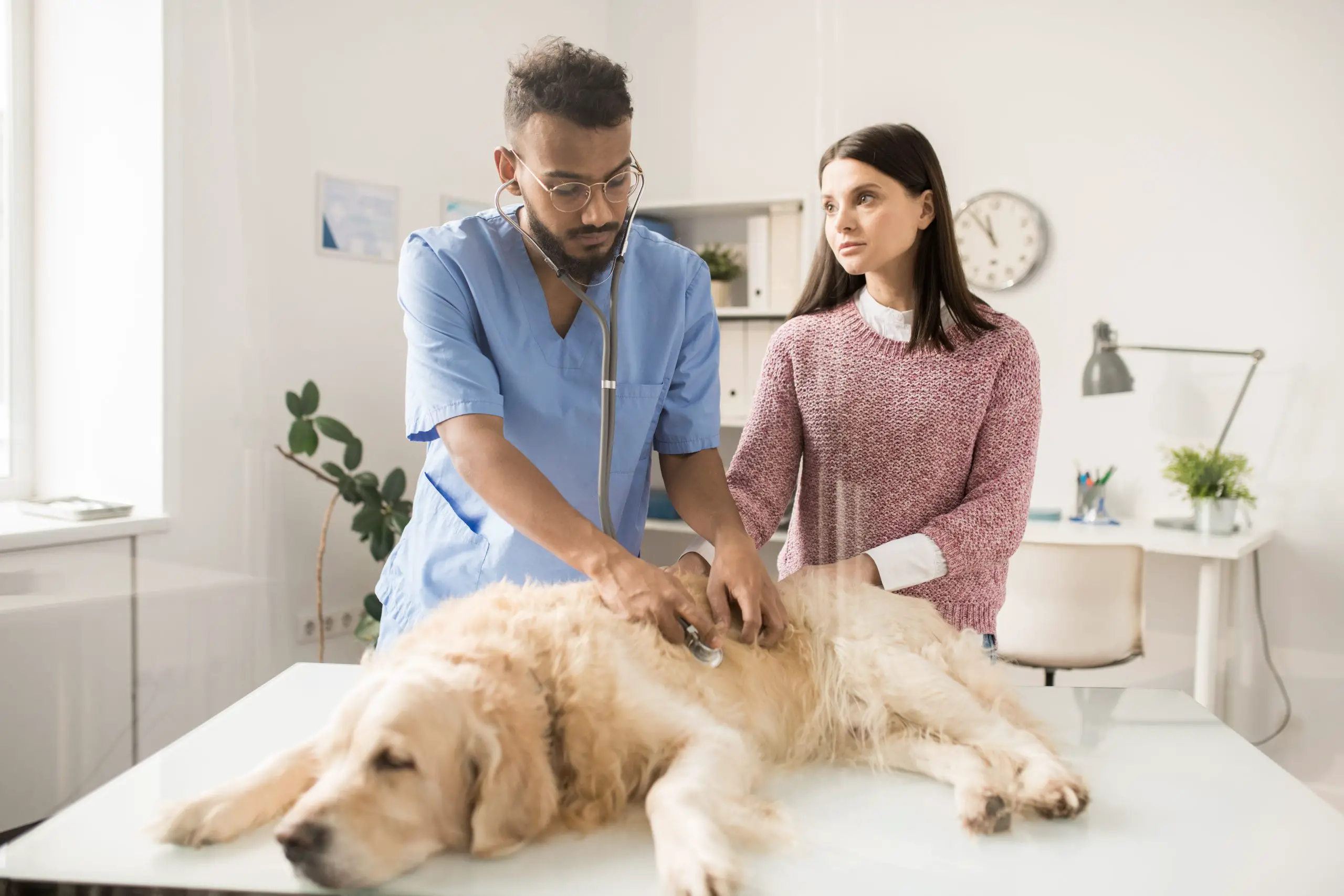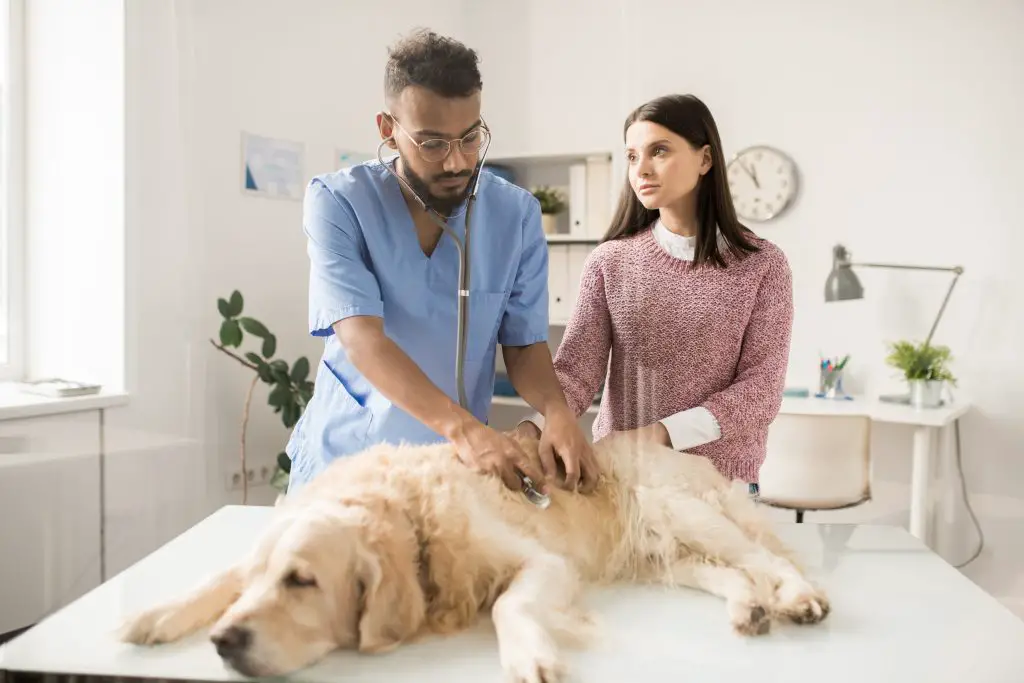Intestinal Parasites in Dogs – How To Treat And Prevent
Intestinal parasites are among the most common parasitic infections a dog can get but left untreated, they can turn into a real health problem. After all, some parasites can cause malnutrition, weight loss, and numerous other problems.
They can also be transmitted to humans in some cases, particularly to children and people with weakened immune systems. Fortunately, it’s not all that hard to prevent and treat intestinal parasites. Here’s how to do it.
Common Parasitic Infections The most common intestinal infestations in dogs come from hookworms, whipworms, roundworms, tapeworms, coccidia, and giardia. Each of these types of parasites affects a dog differently and behaves differently.
For instance, hookworms are small and thin, and attach to the inside of a dog’s intestines, draining blood. In severe cases, these worms can cause anemia or even death (in small dogs and puppies). That’s why intestinal parasites aren’t something to ignore. As soon as you see signs that something is wrong, get your pet treated.
Whipworms
Whipworms are minuscule, almost thread-like worms that live in the cecum and colon. They irritate these areas of the body and can be very uncomfortable. Their eggs are often found in soil and can remain infectious for years, making it hard to tell when your dog might come into contact with them.
If your dog seems to be itchy or uncomfortable when eliminating and engages in “scooting” behavior, whipworms are one of the possible causes.
Roundworms
Roundworms are longer worms that resemble spaghetti. They’re usually contracted from contaminated soil, in the cyst stage. In this stage, they have a hard shell and are capable of living outside their host for long periods of time. Like whipworms, it’s hard to tell when your dog might encounter them. These worms can easily be passed to humans and may be dangerous to small children if untreated.
Tapeworms
Tapeworms are very long worms, with flat, segmented bodies. These parasites burrow into the intestinal wall, and are spread by fleas. When your dog ingests an infected flea, the tapeworm has the chance to get its start. Segments of the worm sometimes break off and are found in the feces, but the main worm can regenerate itself from just the head. Tapeworms can cause significant weight loss and may be passed to humans. Untreated tapeworms can grow to be enormous.
Giardia and Coccidia
Giardia and coccidia are not worms or visible parasites. They’re microscopic creatures that attach to the intestine and its lining and can be passed from one dog to another via feces, food, water, and other contamination. They may make your dog very sick and may be harder to identify at first. Your vet will probably want to test a stool sample to find out what’s wrong.
Young Dogs Are At Risk
Remember that puppies have less developed immune systems than older dogs. That means that the danger of intestinal parasites is much greater for these dogs. In serious cases, puppies can develop significant health problems or even die from infestations. Dogs with compromised immune systems may also be at risk of intestinal parasites.
Take extra care with these pets, to make sure that they’re safe from these parasites. What is a relatively minor infestation in a healthy, young adult dog could turn out to be fatal in a dog with a weaker immune system.
How Infection Works
Dormant parasite larva can live all over the place. They may be in the environment and can be passed by other dogs, insects, birds, and many other animals. They can be found in contaminated soil. Some parasite larva live in mother dogs, and can actually be passed to puppies before birth or while the puppies are nursing. Others will burrow into a dog’s skin, and eventually pass into the intestinal tract. No matter what vector the parasites enter by, they soon make their way to the digestive tract, where they settle down to live.
Symptoms Of Intestinal Parasites
There are a number of signs you should watch for to make sure your dog doesn’t develop a serious parasitic infection. Vomiting, loose or bloody stools, lethargy, a change in appetite (dogs may be ravenous or uninterested in food), a dull coat, weight loss, bloating in the abdomen, or signs of worms or eggs in your dog’s fur or feces are all problem signs. If these signs happen, you need to talk to your vet immediately.
Prevention
Of course, prevention is the best medicine, and deworming medications are an excellent way to make sure intestinal parasites don’t take hold. Puppies should be on appropriate dewormers by two weeks old, and adult dogs should stay on a deworming schedule, too. Some anti-heartworm medications are also preventative against intestinal parasites. Keep your dog from roaming, and away from insects, rodents, birds, and dead animals, which are a major vector for the spread of these parasites.
Clean up after your dog regularly, making sure there’s nothing unusual about the feces, and keep all food and water containers clean. Make sure that fleas don’t get a chance to infest your dog, and avoid contact with strange dogs. This will help your dog avoid intestinal problems and keep both you and your pet happier and healthier. Intestinal parasites can be scary, but if you make sure to do everything you can to prevent them, they don’t have to be a problem.


